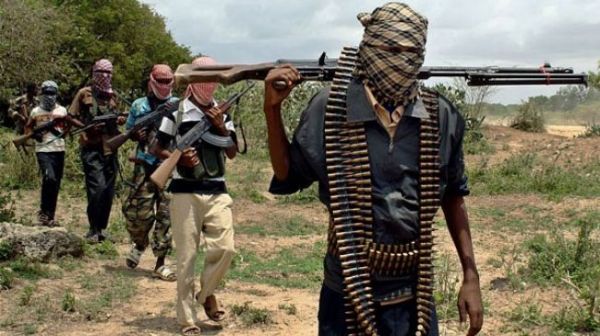
After focusing their efforts for the first time on Niger in the last week, Islamic militant group Boko Haram (pictured) attacked Chad for the very first time overnight Thursday, according to the BBC.
RELATED: After Repeated Boko Haram Attacks Nigeriens Flee, State of Emergency Declared
Keep Up With Face2Face Africa On Facebook!
About 30 militants are said to have crossed Lake Chad to the village of Ngouboua in three motorboats. Once on land, the terrorists reportedly burned down two-thirds of the village and killed 10 civilians, before the Chadian military were able to stop their offensive.
One witness reportedly told Reuters, “They came on board three canoes and succeeded in killing about 10 people before being pushed back by the army.”
While Boko Haram reportedly sustained two deaths, five more were injured, according to Colonel Azem Bermandoua Agouna.
Col. Agouna also said the area’s chief was killed by a stray bullet.
Ngouboua has become a safe haven for Nigerian refugees as well as Chadian returnees. Last October, about 1,000 people fled the city of Kolikolia in Borno state to the village. Then in January, with the alleged massacre of civilians in Baga, another 7,000 Nigerians relocated there, according to UN Refugee Agency UNHCR.
Chad has proven to be a primary weapon in the fight against Boko Haram.
In addition to waging successful airstrikes against the sect in Nigeria and Niger, they have also recovered towns previously occupied by Boko Haram, such as Malumfatori and Gamboru, and fortified the Cameroonian army.
That is why it comes as no surprise that Chad’s military is regarded as the “most effective” in the region.
Still, Boko Haram continues to be a nefarious force as it wages war on four countries (Nigeria, Cameroon, Niger, and now Chad) all at the same time.
It remains to be seen whether the nearly 9,000-man regional force, organized by the African Union, will be sufficient to eventually shutting them down.
RELATED: Boko Haram Focus Wrath Outside of Nigeria: Bus Hijacked in Cameroon, Car Bomb Detonated in Niger










